Outside Manchester Royal Infirmary, car horns beep as striking medics wave orange placards demanding “Pay Restoration for Doctors.”
Most are decked out in matching British Medical Association-branded tangerine baseball caps and bucket hats. Some carry homemade cardboard signs: “Overworked, Underpaid, Undervalued”, or “Wes: Stop (S)Treating Us Like [poo emoji]”.
They have gone out on strike for five days from Friday after talks with the health secretary, Wes Streeting, broke down last week. Doctors say that in real terms their pay has decreased by 21% since 2008, and they are demanding an uplift in salaries for resident doctors.
Many graduate from medical school with student debt of £100,000 or more, they say, with the cost of ongoing training such as exams also placing a heavy financial burden on new doctors who, the BMA says, earn just £18.62 a hour.
In Manchester, public support for the strike is evident; there is a raised fist or a beeping horn from almost every second vehicle that drives past.
It is not the first time doctors have gone on strike – there were 11 separate walkouts during 2023 and 2024 alone. But the doctors here say they had hoped a change of government would see an end to the long-running pay dispute.
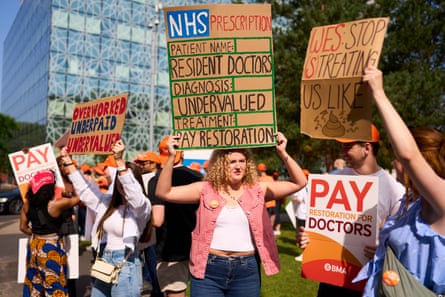
Last September, doctors voted by 66% to accept a government pay deal, with Streeting promising a “journey” to pay restoration. But now they have walked out again, saying progress has been too slow and this year’s pay increase from the government is not what they had expected.
“We’re out on strike today because no doctor today is worth 21% less than they were in 2008,” Mohammed Kamora said. “We’re asking for the government to restore our pay. We’re not even asking for that to happen in one go. We’re asking for a journey to make that happen. We don’t think that’s unreasonable.
“We were hopeful when the government came to an agreement last year about this pay uplift. Wes Streeting used the term a journey to pay restoration as well.”
But, Kamora added: “If we continue on the current trajectory, it’s going to take us well over a decade to reach pay restoration. Think of how many doctors we’re going to lose in the interim if we continue.”

Shanu Datta, a co-chair of the BMA’s consultant committee, is not involved in the strike, which does not include consultants, but had come down to the picket line to support resident colleagues. “We had a very cordial meeting with the secretary of state in December. We thought that could be the basis of conversations going forward,” he said.
“Our hope was that we would have a sense of conversation around restoring our pay over time, and that’s what Wes Streeting was saying in opposition, and the deal that we thought we’d made, or we had made, last year was going to be the basis, a foundation for more discussion, more conversation going forward, and that’s what’s not happening.”
Datta added: “These are some of the brightest young people. I’ve been talking now to some of them. Some of them want to be cancer specialists, some of them want to be emergency medicine specialists, some of them want to be psychiatrists.
“If we can’t get these people to stay in this country and the NHS specifically, then the NHS is doomed, frankly.”
after newsletter promotion

Dr Ross Nieuwoudt, a BMA resident doctors committee co-chair who has been among those leading the industrial action, joined the Manchester picket line.
“We’re not asking for everything all at once,” he said. “All we want is for Wes Streeting to keep his promise of restoring our pay as a journey. The 0.9% increase above inflation that was given this year is not an adequate step in that journey. So that’s why we’re out today.
“I must be honest, I’m very disappointed, I expected more. I think when [Streeting] initially came in, there were lots of grand words about settling the strikes and this journey to restoring our pay, but when the time came to deliver on the second step he couldn’t do it.”
Nieuwoudt also pointed out that when resident doctors – then known as junior doctors – walked out under the Conservative government, Streeting was a vocal backer of the striking medics and called on the then health secretary to take action to bring about an end to the dispute. “I’m wondering where that man is now,” Nieuwoudt said. “He was making some good points.”
He also hit back at claims from Streeting that the strike would undermine the trade union movement, saying that the health secretary’s comments were “a very strange thing to say”.
“I think when doctors are leaving the country, when doctors are struggling with pay and conditions, and genuinely are losing hope that the NHS will be a place worth working in, I don’t think representing our members and taking them out on strike action is undermining the trade union movement in any way,” Nieuwoudt said.
“If the membership has voted to do this action, and we’re representing our membership, then that seems exactly what a union should be doing.”

 17 hours ago
3
17 hours ago
3

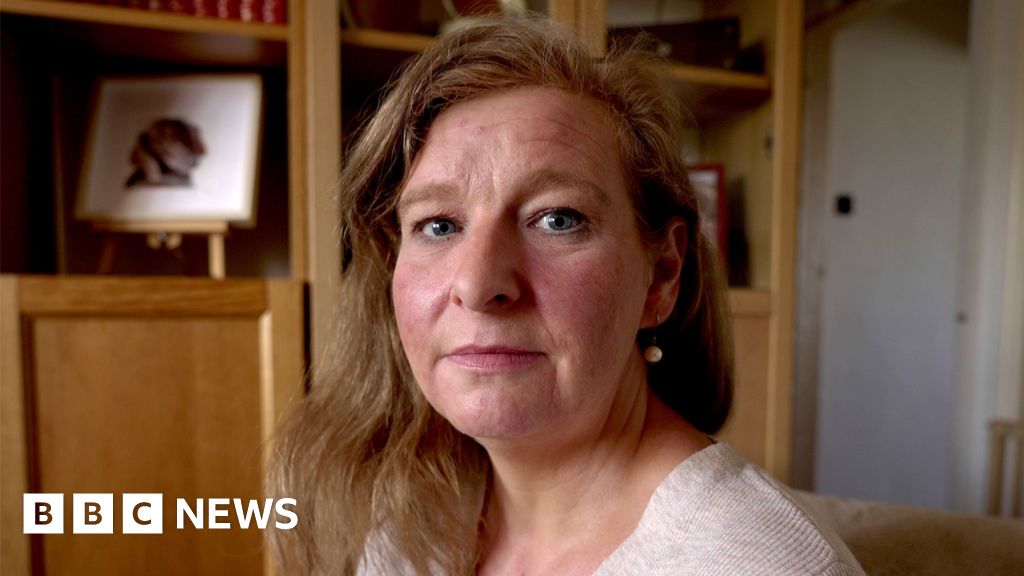

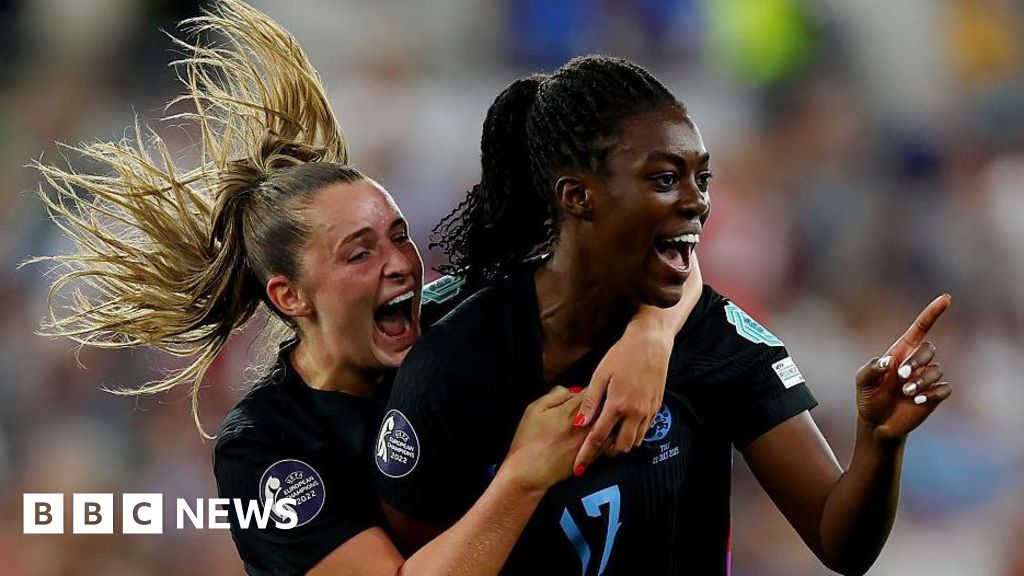


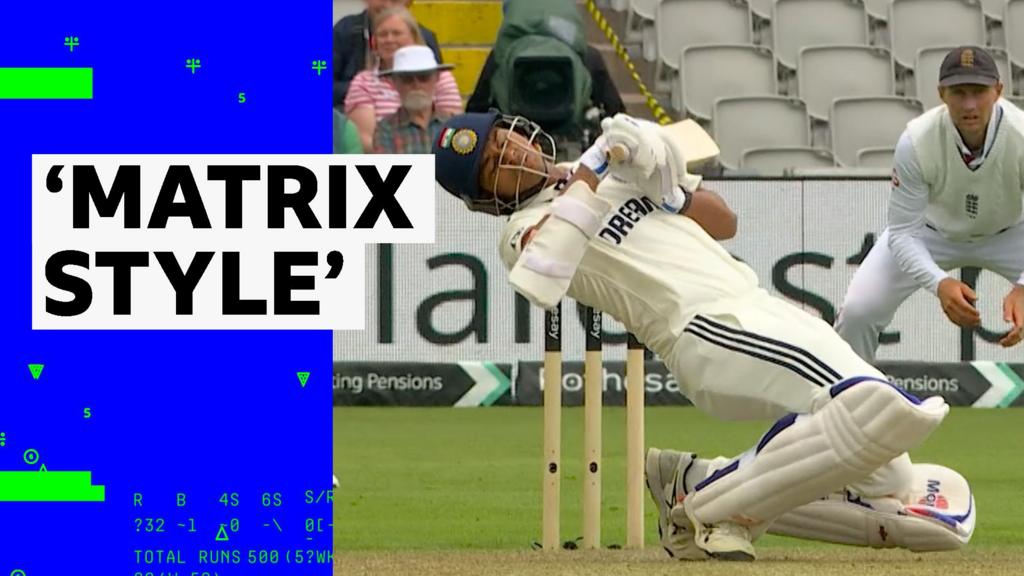
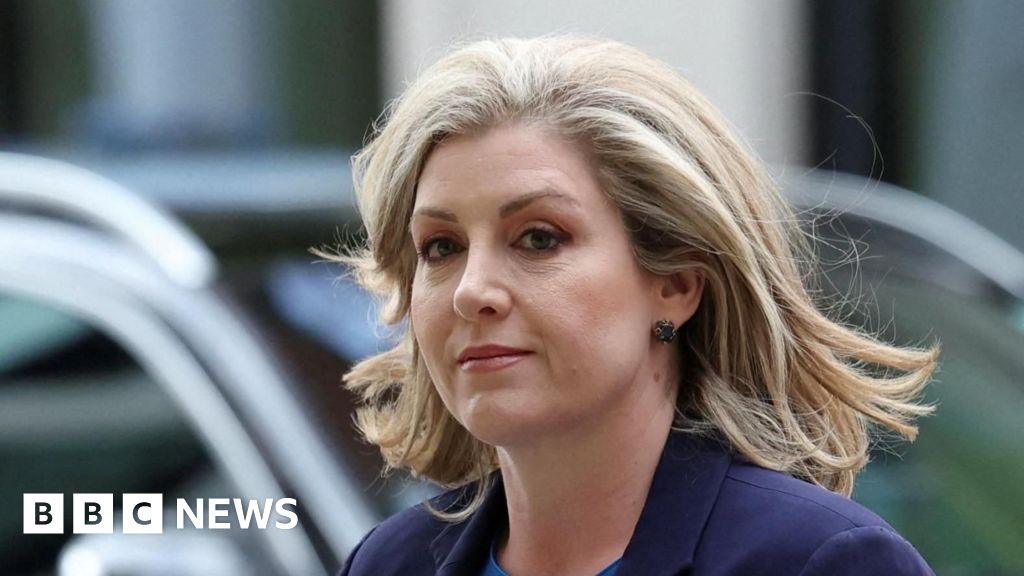


 English (US)
English (US)